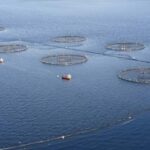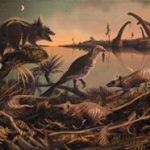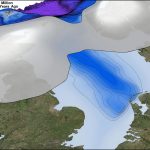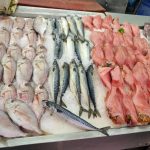Gaia: scientists take a step closer to revealing origins of our galaxy
An international team of astronomers, led by the University of Cambridge, announced the most detailed ever catalogue of the stars in a huge swathe...
Warmer nights prompt birds to lay eggs earlier
Rising night-time temperatures are causing woodland birds to build nests and lay eggs earlier in springtime, research shows.
As climate change continues to cause temperatures...
Nutritious fish stocks being squandered by salmon farming say scientists
Millions of tonnes of highly-nutritious wild fish could stay in the ocean while also boosting seafood production if changes are made to the feeds...
Scientists uncover how an explosion of new genes explain the origin of land plants
Scientists have made a significant discovery about the genetic origins of how plants evolved from living in water to land 470 million years ago.
The...
Earth’s nearest supergiant is cooling down at the end of its life
In late 2019 the red supergiant closest to Earth, Betelgeuse, began to rapidly fade in brightness. Initially thought to be a sign that the...
Man’s earliest ancestors discovered in southern England
Fossils of the oldest mammals related to mankind have been discovered on the Jurassic Coast of Dorset.
The two teeth are from small, rat-like creatures...
New research reveals British Isles buried under ice sheets 2.5 million years ago
Breakthrough research has revealed the British Isles were repeatedly submerged under an ice sheet extending to the centre of the North Sea over a...
An orchid growing on a volcano and an underground tree amongst new species named...
74 plants and 15 fungi were named by botanists and mycologists at Kew and at partner organisations around the globe.
They cover everything...
Over 40 percent of Antarctica’s ice shelves are smaller
71 of the 162 ice shelves that surround Antarctica have reduced in volume over 25 years from 1997 to 2021, with a net release...
Salford Scientists find that fish mislabelling is a threat to marine conservation
Scientists at Salford university have found widespread mislabelling, poor trading practices and neglect for endangered species are threatening fish stocks after DNA-testing seafood products...










